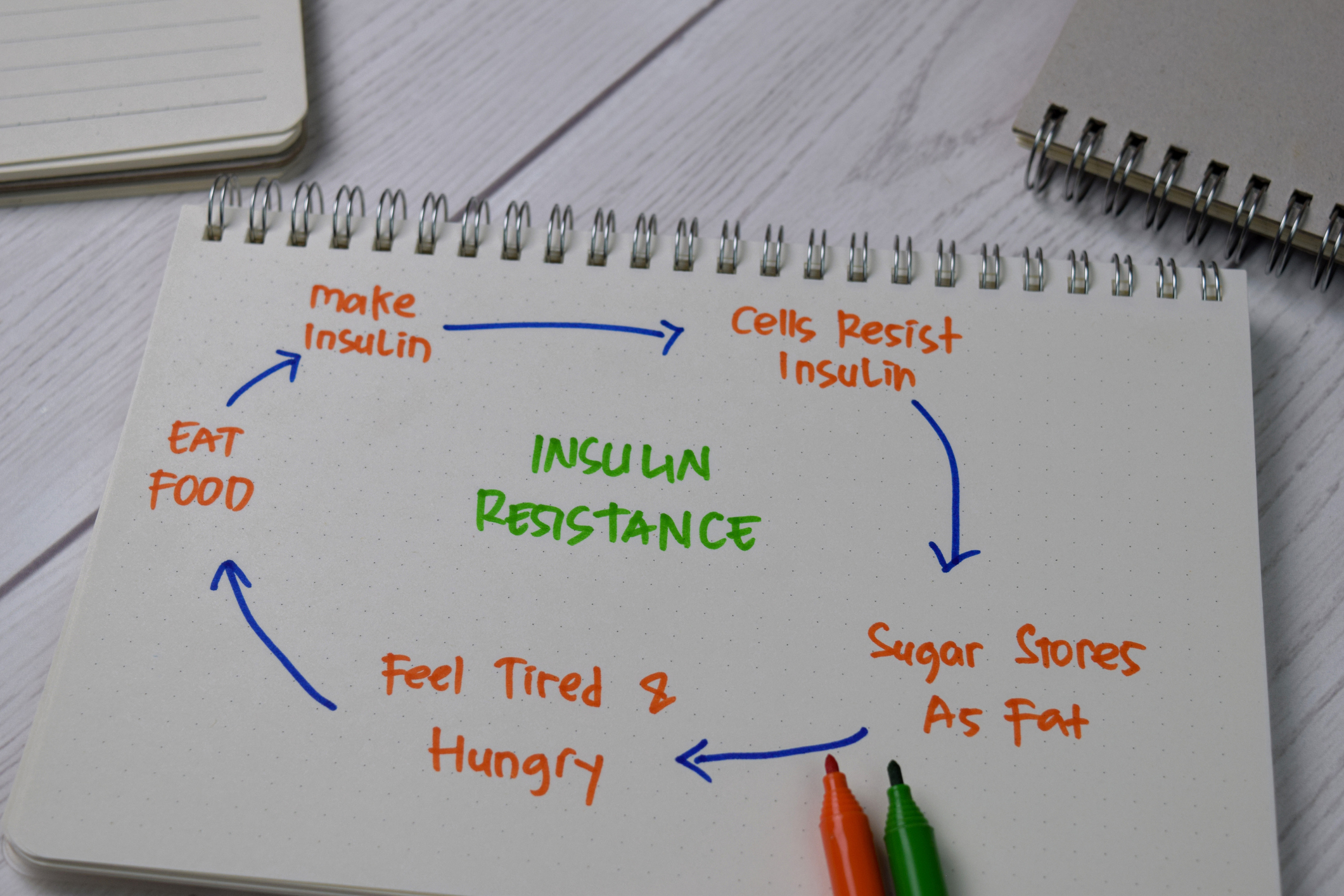Get Easy Health Digest™ in your inbox and don’t miss a thing when you subscribe today. Plus, get the free bonus report, Mother Nature’s Tips, Tricks and Remedies for Cholesterol, Blood Pressure & Blood Sugar as my way of saying welcome to the community!
The surprising effects of antioxidants on insulin resistance and metformin

Oxidative stress is what happens when the free radicals and antioxidants in your body get out of balance.
While some free radicals occur naturally in the body, others are caused by external factors like environmental pollutants, industrial solvents, radiation, cigarette smoke, prescription drugs and pesticides. When you’re exposed to these factors, as we all are, it increases the number of free radicals in your body. This can lead to a cascade of cell damage, premature aging and disease.
Oxidative stress has been linked to conditions like heart disease, arthritis, stroke, metabolic disease, respiratory diseases, immune deficiency, Parkinson’s disease and other inflammatory conditions.
Antioxidants counteract oxidative stress and help bring the body back into balance. They are found naturally in fruits, vegetables, legumes and nuts and include nutrients like vitamins C and E, selenium and carotenoids such as beta-carotene.
When antioxidant intake is increased, most people notice improvements in energy, immunity, cognitive function, skin and other markers of vitality, and reductions in pain and inflammation. And it’s possible that antioxidants can help protect against the conditions caused by oxidative stress — including one of the most preventable mechanisms involved in metabolic disease…
Antioxidants and insulin sensitivity
Researchers in Italy studied the effects of dietary antioxidants on participants who were obese and had metabolic syndrome but were not yet diabetic.
Metabolic syndrome is a cluster of metabolic risk factors that can result in heart disease and/or stroke. And, because people with metabolic syndrome become resistant to insulin, the hormone that regulates blood sugar, they are at high risk of developing diabetes.
Each study subject was randomly assigned to one of four treatment groups. All groups followed a low-calorie, Mediterranean-type diet averaging 1,500 calories daily, with only 25 percent of calories coming from protein. The rest of the calories came from carbohydrates like whole grains that are low in the glycemic index, meaning they do not raise blood sugar levels quickly or dramatically.
Group A only ate this kind of diet, while group B ate the same diet plus took the antidiabetes drug metformin, which increases insulin sensitivity. Group C followed the same diet as groups A and B, but the diet was calculated to enrich antioxidant content to 800 to 1,000 milligrams a day coming from fruits and vegetables. And group D followed this antioxidant-enriched diet and took metformin.
All four groups had a similar loss in weight. However, only groups C and D, the groups receiving the antioxidant-rich diet, showed a significant decrease and insulin resistance. And according to some measures of insulin response to an oral glucose tolerance test, group D had the best improvement in insulin resistance.
The participants in the antioxidant diet reported no adverse effects. “We think that a total antioxidant level of 800 to 1,000 milligrams a day is safe and probably not close to the maximum tolerable level,” says principal author Dr. Antonio Mancini, an endocrinology researcher at Catholic University of the Sacred Heart in Rome.
Pumping up your own antioxidant count
You might be pleased to know that this isn’t the only study that’s found a diet high in antioxidants can counter blood sugar problems…
The French National Institute of Health and Medical Research looked at health and diet records of 64,223 middle-aged women between 1993 and 2008. They found that women eating the most antioxidants had a 27 percent lower risk of developing diabetes than women eating the least.
So, if you have metabolic syndrome and aren’t eating a lot of antioxidant-rich foods, you may want to change that. Focus on the fruits and vegetables that give you the highest antioxidant count per serving. For instance, strawberries contain roughly 38 milligrams per deciliter (mg/dL) of antioxidants, while blueberries contain 166 mg/dL and blackberries 111 mg/dL.
Then there’s the acai berry, a health powerhouse that contains as much as 10 times the antioxidants as blueberries. One study indicates eating acai fruit pulp might reduce markers of metabolic disease such as blood sugar and cholesterol levels in overweight people.
What about supplementing with nutrients high in antioxidants, like vitamins C and E? The issue with that is that if you simply take a vitamin C supplement, you won’t be getting the plant chemicals, or polyphenols, naturally found in fruits and vegetables like proanthocyanins and flavonoids. These polyphenols also have antioxidant activity and may team up with vitamin C to fight disease.
So, if you are going to take an antioxidant supplement, make sure it contains the same polyphenols found in plant-based foods. That way, you’re getting the full benefit of the antioxidants.
Editor’s note: Are you feeling unusually tired? You may think this is normal aging, but the problem could be your master hormone. When it’s not working, your risk of age-related diseases skyrockets. To reset what many call “the trigger for all disease” and live better, longer, click here to discover The Insulin Factor: How to Repair Your Body’s Master Controller and Conquer Chronic Disease!
Sources:
Well-defined quantity of antioxidants in diet can improve insulin resistance, study finds — ScienceDaily
Antioxidants — Harvard T.H. Chan School of Public Health
Effects of Açai (Euterpe oleracea Mart.) berry preparation on metabolic parameters in a healthy overweight population: A pilot study — Nutrition Journal
The Antioxidant Food Table — Retina Foundation














